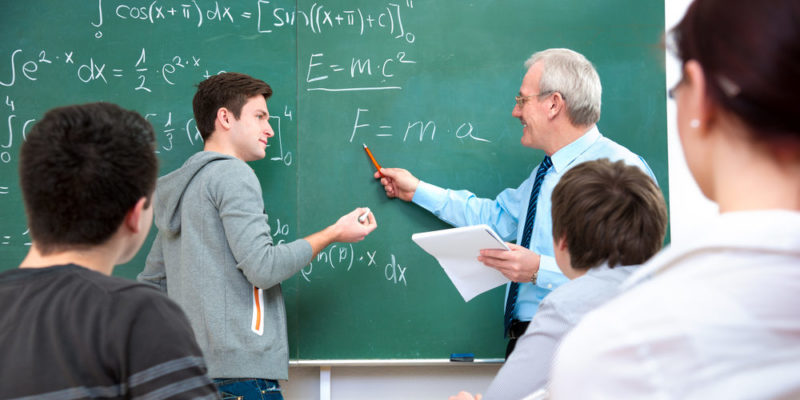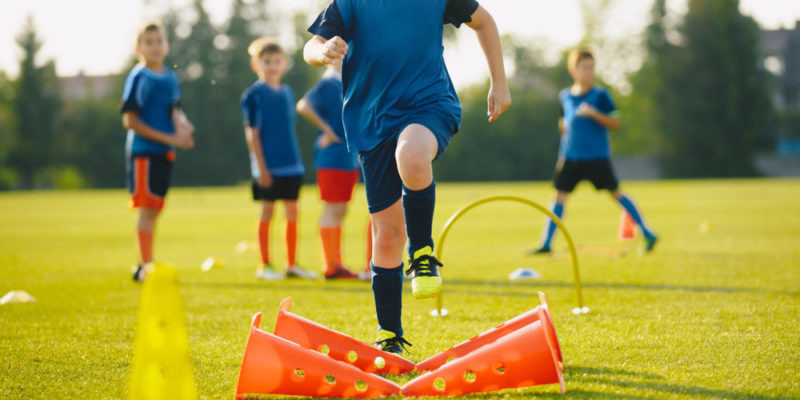We explain what a good school is like and what qualities a teacher should have. In addition, its general characteristics and obligations.
What is a School?
The word school comes from the ancient Greek word skholé and from the Latin schola, whose original meaning alluded to tranquility and free time. Later it would acquire its sense of place of study when the philosophical schools began during the Hellenistic period. Currently, the term refers to the different academic, physical and moral training centers to which the citizens of a nation dedicate their first years of life.
The importance of the school in the constitution of societies has been key and widely recognized by scholars of the area since through it the models of citizenship and the ethical, moral, and patriotic values essential for the perpetuation of the social system are established.
Hence, also, that it has been one of the main disputed territories by the revolutionary ideologies of the 20th century and that theorists such as Louis Althusser called it one of the “ideological apparatuses” available to the State to establish cultural hegemony.
At the same time, the trend in current educational sciences is to problematize the traditional model of school education as a way of attacking at their roots the different evils that afflict modern societies.
Characteristics of a good school :
Integral formation
An ideal educational center, according to contemporary trends, undertakes the training of students from many more perspectives than the merely academic one; thus understanding the school space as much more than a site that is attended only to receive a set of techniques and knowledge.A good school, in this sense, pursues the academic, moral, ethical, physical, and spiritual constitution of its students, through various spaces and strategies conducive to the stimulation of said learning.
Committed teachers
 At the same time, a good school must bet on quality academic teaching, for which it requires a teaching staff committed to their work, with their own growth and updating of the knowledge they handle.
At the same time, a good school must bet on quality academic teaching, for which it requires a teaching staff committed to their work, with their own growth and updating of the knowledge they handle.This also implies training in extracurricular pedagogical areas, in order to have a variety of teaching tools to tackle the specific and varied difficulties that students may present in time.
Attention to special needs
Given that not all students will present similar learning facilities, nor will they come from homogeneously constituted homes, nor will they offer the same social and emotional concerns, a good school would have to consider its students based on plurality, tolerance, and attendance specialized that may be required, in areas such as psychological, spiritual and nutritional, among other possibilities.
Collaboration between family and institution
 One of the most critical points of contemporary schooling tends to lie in the role of parents during the training of students. A good school must foster dialogue and cooperation between the family and the academic environment since they are the two areas of greatest learning in early life and will necessarily be reflected in each other.
One of the most critical points of contemporary schooling tends to lie in the role of parents during the training of students. A good school must foster dialogue and cooperation between the family and the academic environment since they are the two areas of greatest learning in early life and will necessarily be reflected in each other.
Technology education
While certain contemporary technologies can disrupt the classroom environment (mobile phones, for example), the ideal school cannot turn its back on the growing technological race that began at the beginning of the 21st century.New technologies and the Internet must take their place in the school context, precisely because it is the best possible opportunity to learn to deal with them in a positive way and to use them as an aid in the work of academic growth .
Social and sports training
 A good school should have the necessary spaces outside the classroom for exercise and sports, essential during the early stages of the individual's life, as well as areas that freely promote social exchange, the pursuit of artistic interests (musical, literary, etc.), and purely recreational interests.
A good school should have the necessary spaces outside the classroom for exercise and sports, essential during the early stages of the individual's life, as well as areas that freely promote social exchange, the pursuit of artistic interests (musical, literary, etc.), and purely recreational interests.
The climate conducive to learning
A good school satisfies the requirements in terms of infrastructure, human resources, and operational climate that guarantee the happy permanence of the students in its facilities and that the learning process is carried out without deficiencies and with the least amount of setbacks possible. It is impossible to learn happily in a dilapidated school, without sufficient teachers or in overcrowded conditions.
The school project is known and shared
Since there are diverse forms of education, the one undertaken in a good school should be public and notorious, that is, of knowledge for the whole community. In this way, the specific approach to education undertaken in the school will have the validation and participation of the interested parties.Something particularly valuable in open classroom teaching methodologies, holistic or alternative approaches to the educational subject, or even schools for students with special needs.
The methods of selection and stimulation of the students
 The ideal school cannot take place with your back to the community and its needs, so you have to think of an admission method that is consistent with your operational needs but at the same time is as non-discriminatory as possible.
The ideal school cannot take place with your back to the community and its needs, so you have to think of an admission method that is consistent with your operational needs but at the same time is as non-discriminatory as possible.No student would have to feel segregated in school because of their racial, cultural, sexual, or economic status, and the school would have to vigorously combat such prejudice in their community.
In addition, it would have to have scholarship or stimulus programs for students that make improvement, commitment, and effort the vital guidelines of the students.
The administration of discipline
Few things are as important in a good school as the fair and equitable management of discipline, so as not to encourage impunity and resentment among students. Clear limits and rules, as well as fair and exemplary sanctions, always in accordance with the offense committed, are essential for this.The above content published at Collaborative Research Group is for informational and educational purposes only and has been developed by referring to reliable sources and recommendations from technology experts. We do not have any contact with official entities nor do we intend to replace the information that they emit.
MA student of the TransAtlantic Masters program at UNC-Chapel Hill. Political Science with a focus on European Studies. Expressed ideas are open to revision. He not only covers Technical articles but also has skills in the fields of SEO, graphics, web development and coding. .
Leave a reply
Your email address will not be published. Required fields are marked *Recent post

Sport: What Is It, Types, Risks, Features, Characteristics and Examples

Dogs: Emergence, Features, Characteristics, Feeding and Breeds

Story: Definition, Elements, Structure, Features and Characteristics

